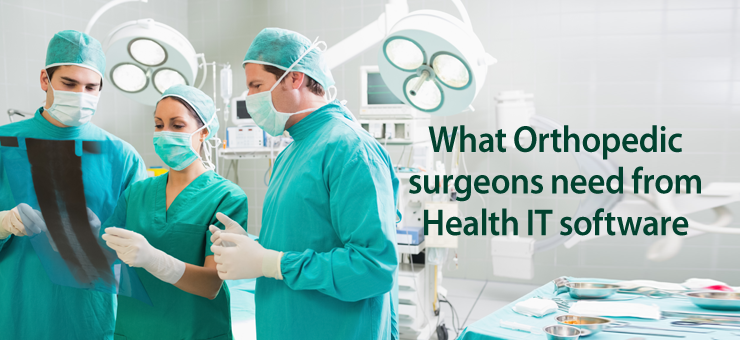There was a time when specialists were not in demand, and visiting a general physician used to be sufficient to address all of your health problems. However, as the healthcare industry evolved, the need for specialists increased and now, in addition to their general physician almost everyone has a specialist they prefer consulting.
Every specialist practice setting has its own unique workflows – a completely different set of challenges which require diverse and flexible software functionality. Let’s take a look at how CureMD is using their state-of-the-art All-in-One software, to address the unique challenges faced by Orthopedic surgeons.
The state of Orthopedic Surgery
Orthopedic surgeons diagnose, treat and prevent injuries to, and diseases of, the musculoskeletal system. They perform both minor procedures and major surgeries. While most Orthopedic surgeons work in private practice settings, they spend a significant portion of their time performing procedures in hospitals and ambulatory care centers.
As the financial pressures of maintaining a private practice have increased, a growing number of Orthopedic surgeons are turning to hospitals for full time employment. Despite this, according to a Medscape report, Orthopedics are still the highest paid doctors in the US, earning an average of over $400,000 a year. However, when it comes to financial viability, declining reimbursements and increasing costs are still a major concern.
According to the American Academy of Orthopedic Surgeons(AAOS), there are a total of 27,773 Orthopedic surgeons on record. Arthroscopy is the most common specialty area for Orthopedic surgeons, followed by Adult Knee and Sports Medicine.
What do Orthopedic Surgeons need from Health IT solutions?
In the AAOS survey, a staggering 44% of Orthopedic surgeons practice privately. Given the fact that they need to manage their time between practice and hospital settings, they should ideally consider cloud-based EHR solutions. In comparison to client-server software, cloud-based EHRs can be accessed from anywhere with an Internet connection, giving Orthopedic surgeons the option of taking their patient information offsite.
Additionally, they should opt for an EHR software which offers customizable templates, because they see patients during all stages of the treatment cycle. The software must also offer them the flexibility to create templates, which work well for all types of care situations.
As far as administrative duties are concerned, Orthopedic surgeons require an enterprise-grade Practice Management software, which can help them battle declining imbursements and rising costs.
The Practice Management software must contain code scrubbing, rules checking and patient eligibility verification capabilities, in order to put Orthopedic surgeons’ revenue cycle on the right track. This way, by reducing errors, a Practice Management software can significantly reduce the financial impact of denied claims.
Orthopedic surgeons are also, likely to see more patients in order to counter potential financial setbacks. A top quality Practice Management solution, with real-time patient flow charts will pinpoint exactly where problems occur, thus enabling the surgeons to use resources more efficiently.
Orthopedic surgeons are the highest paid specialists, and will need to take action in order to remain at the top. A completely integrated Electronic Health Record and Practice Management system is their best shot at improving productivity, and maintaining profitability.
